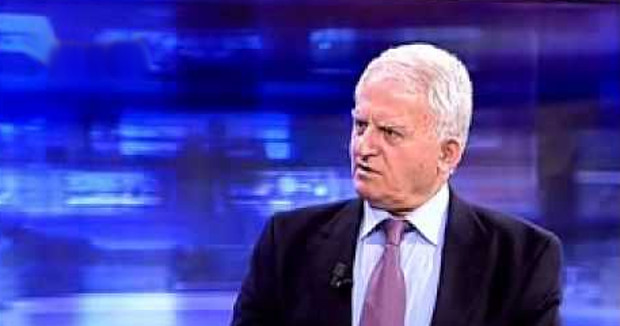In an interview with Reuters the General Secretary of Free Life Party of Kurdistan (PJAK) Eastern Kurdistan political party said new Iranian president Hassan Rouhani is taking advantage of West’s wary optimism to step up pressure on Iranian citizens, particularly Kurdish people and had evidently increased executions.
Former regime’s government brought about a political chaos internally and externally. As a result of former hardliners policies Islamic regime was isolated economically, politically and diplomatically by the international community and a result of the hardliners fixed policies economic sanctions were reached its highest peak at the end of former government. However, the election of what is known as relatively moderate and former chief nuclear negotiator Hassan Rouhani has shaped a diplomatic approach between Islamic regime and a group of 6 world powers which are concerned about the Islamic regime’s nuclear enrichment and trying to persuade Islamic regime to postpone its enrichment activities.
Following his election as new Iranian president, Rouhani during the attendance to the UN annual meeting for the first since 1979 spoke to the American president Barack Obama.
Haji Ahmadi in a written interview told Reuters that Rouhani “belongs completely to the core system” of Iran’s supreme leader, Ayatollah Ali Khamenei, and bringing him to the fore was Teheran’s attempt to get out of political deadlock. Further to that Rouhani played very well so far, managed to escape from some crises as well as deceiving some of the Iranian people, Haji Ahmadi said, however, this would end if he fell short of election pledges in a country hungry for change.
PJAK is an Eastern Kurdistan political Party seeking self-governing within the Iranian territory in particular and democratization of East Kurdistan and Iran in general.
In 2011 Islamic regime of Iran and PJAK had signed a ceasefire accord, but Haji Ahmadi stated that he believes that Islamic regime is gearing up for another offensive against PJAK. Haji Ahmadi further stated that “the Americans and the Europeans are being optimistic, but no internal changes have been made, pressure on the people and the rate of executions have markedly increased.”
One of the Rouhani’s election pledges was release of political prisoners. Once he was elected as president his government had released several political prisoners, but none were of non-Persian ethnicity, Haji Ahmadi said.
Haji Ahmadi pointed to Iran’s recent execution of 16 people in a day last month, most of them baluchi, Sunni Muslims who lived near the Pakistan border, as well as two PJAK members.
Senior judiciary officer stated that the execution of Baluchi political prisoners was in revenge of the killing of 14 Revolutionary Guards in Baluchestan region a week before.
Islamic regime of Iran attempting to eliminate all internal political opponents, and it begins with the mass execution of political prisoners as it was the case in 1988-1989 which 6000 t0 7000 political prisoners were executed by regime’s authorities. Hassan Rouhani is tasked by the Iranian supreme leader to re-establish regime’s diplomatic ties with Western countries temporarily and more importantly while diplomatic connection goes on with the West, takes advantage of the period to minimise internal risks and annihilate real and serious opposition groups.
Haji Ahmadi said all Iran’s ethnicities aspired to the same rights Persians have, and he continued by stating that Kurds envisage a free boarder confederation system with the aim to avoid possible future civil war between different national groups.
